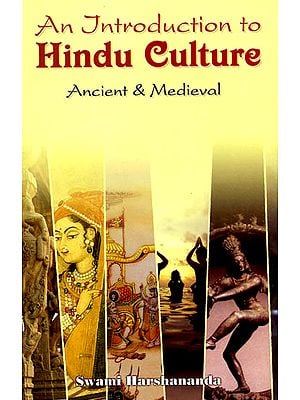
With over a billion followers worldwide, Hinduism is one of the oldest and most diverse religions in the world. If you want to buy hindu cuIture book, encompasses a wide range of beliefs, practices, and traditions that can be overwhelming to navigate, especially for those unfamiliar with the faith. Whether you are a curious outsider looking to learn more about Hinduism or a practitioner seeking a deeper understanding of your own religion, this guide is designed to provide you with essential information to help you navigate Hindu beliefs and practices.
Introduction to Hinduism
Key Beliefs
- Hinduism is a complex, diverse, and inclusive religion that does not have a single founder or central religious authority.
- It is based on the principle of dharma, or duty, righteousness, and cosmic order.
- Central themes in Hinduism include the concepts of karma (the law of cause and effect), reincarnation, and moksha (liberation from the cycle of birth and death).
Sacred Texts
- The Vedas, Upanishads, Bhagavad Gita, and Ramayana are among the most important texts in Hinduism.
- These texts contain a wealth of philosophical, moral, and spiritual teachings that guide the beliefs and practices of Hindus.
- They are written in Sanskrit and have been passed down orally and through written manuscripts for thousands of years.
Hindu Deities
Major Gods and Goddesses
- Hinduism is known for its vast pantheon of gods and goddesses, each representing different aspects of the divine.
- Some of the major deities in Hinduism include Brahma (the creator), Vishnu (the preserver), Shiva (the destroyer), Lakshmi (goddess of wealth), and Saraswati (goddess of knowledge).
- Worship of these deities is central to Hindu rituals and practices, with devotees often choosing a specific deity as their primary focus of devotion.
Symbolism and Iconography
- Hindu deities are often depicted with multiple arms, heads, and attributes, symbolizing their divine powers and qualities.
- Each deity has their own unique symbolism and iconography, such as Vishnu holding a conch shell, discus, mace, and lotus flower.
- These symbols are used in rituals, ceremonies, and artworks to evoke the presence and blessings of the deity.
Practices and Rituals
Puja (Worship)
- One of the central practices in Hinduism is puja, or worship, which can be performed at home or in temples.
- During puja, offerings such as flowers, incense, fruits, and sweets are made to the deity, along with prayers and mantras.
- Devotees may also light lamps, ring bells, and perform aarti (a ritual of waving lighted lamps) as part of the worship ceremony.
Festivals and Celebrations
- Hinduism is rich in festivals and celebrations that mark significant events in the lives of deities, seasons, and lunar cycles.
- Some of the major Hindu festivals include Diwali (Festival of Lights), Holi (Festival of Colors), Navaratri (Nine Nights of Worship), and Dussehra (Victory of Good over Evil).
- These festivals are celebrated with rituals, prayers, feasting, and community gatherings, bringing people together in joy and devotion.
Meditation and Yoga
Meditation Practices
- Meditation is an integral part of Hindu spiritual practices, aimed at calming the mind, cultivating inner awareness, and connecting with the divine.
- There are various forms of meditation in Hinduism, including Japa (chanting of mantras), Dhyana (contemplation), and Kundalini (awakening of spiritual energy).
- Regular meditation practice is believed to purify the mind, increase concentration, and bring about spiritual growth and enlightenment.
Yoga Tradition
- Yoga is another ancient practice that originated in Hinduism, focusing on physical postures, breath control, and meditation.
- There are several branches of yoga, including Hatha, Bhakti, Karma, and Jnana yoga, each emphasizing a different aspect of spiritual practice.
- Practicing yoga is not only beneficial for physical health but also for mental well-being, emotional balance, and spiritual development.
Conclusion
As you explore the rich and diverse world of Hindu beliefs and practices, remember that there is no one-size-fits-all approach to understanding this ancient religion. It is a journey of self-discovery, spiritual growth, and cultural immersion that requires an open mind, respect for traditions, and a willingness to learn from different perspectives. By delving into the key beliefs, deities, practices, and rituals of Hinduism, you can gain a deeper appreciation for this vibrant and multifaceted faith and its profound impact on the lives of millions of people around the world.

